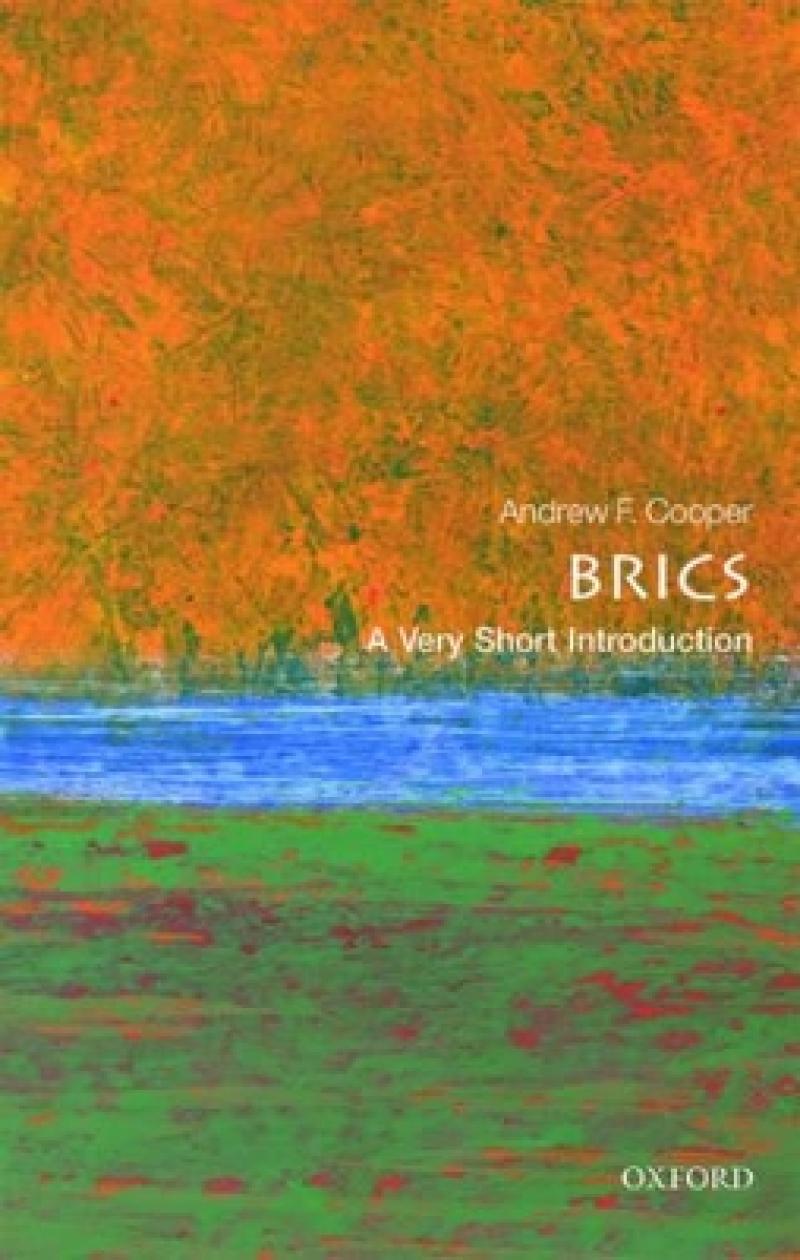In the wake of the post-Cold War era, the aftermath of 9/11, the 2008 global financial crisis, and the emergence of the G20 at the leaders level, few commentators expected a reshaping of the global system towards multipolarity, and away from the United States. And yet, the BRICS - encompassing Brazil, Russia, India, China and South Africa - has emerged as a challenge to the international status quo. But what is its capacity as a transformative force? And can it provide a significant counter-narrative to the Western dominated global order?
In this Very Short Introduction Andrew Cooper explores the emergence of the BRICS as a concept. Drawing on historical precedent, Cooper provides a contemporary analysis of the BRICS' practice and influence as as a forum and a lobby group in advancing a distinctive but amorphous agenda amongst global politics.
ABOUT THE SERIES: The Very Short Introductions series from Oxford University Press contains hundreds of titles in almost every subject area. These pocket-sized books are the perfect way to get ahead in a new subject quickly. Our expert authors combine facts, analysis, perspective, new ideas, and enthusiasm to make interesting and challenging topics highly readable.
Les mer
Brazil, Russia, India, China and South Africa represent almost 18 per cent of the world economy, with their contribution to world growth having already exceeded 50 per cent. But what does the emergence of the BRICS mean for global politics? Andrew Cooper discusses the BRICS as a concept and its practice in global politics.
Les mer
1. Framing the BRICS ; 2. A contested invention: The BRIC, BRICs, and the BRICS ; 3. A historical departure ; 4. Hanging together ; 5. Building the new development bank ; 6. BRICS as the recognition of states, not societies ; 7. The staying power of the BRICS ; Further Reading ; Index
Les mer
Cooper's very short introduction on the BRICS grouping indeed fills an important niche, providing a solid overview which can be read in a few hours and includes all the basic information.
Provides an informative, analytical and comprehensive overview of the BRICS
Addresses a wide range of issues concerning the BRICS in our contemporary political landscape
Offers an explanation of what the BRICS have been able to accomplish as a hybrid club, forum, and lobby group in global politics, and their potential trajectory going forwards
Part of the bestselling Very Short Introductions series - over seven million copies sold worldwide
Les mer
Andrew F. Cooper is Professor at the Balsillie School of International Affairs and the Department of Political Science, University of Waterloo, Canada. He is the Director for the Centre for Studies on Rapid Global Change, University of Waterloo; Associate Senior Fellow, Centre for Global Cooperation Research, Duisburg, Germany; and Associate Research Fellow-UNU CRIS (Institute on Comparative Regional Integration), Bruges, Belgium. His books include The Group of
Twenty (G20) (Routledge, 2013)
Les mer
Provides an informative, analytical and comprehensive overview of the BRICS
Addresses a wide range of issues concerning the BRICS in our contemporary political landscape
Offers an explanation of what the BRICS have been able to accomplish as a hybrid club, forum, and lobby group in global politics, and their potential trajectory going forwards
Part of the bestselling Very Short Introductions series - over seven million copies sold worldwide
Les mer
Produktdetaljer
ISBN
9780198723394
Publisert
2016
Utgiver
Vendor
Oxford University Press
Vekt
126 gr
Høyde
174 mm
Bredde
112 mm
Dybde
9 mm
Aldersnivå
U, 05
Språk
Product language
Engelsk
Format
Product format
Heftet
Antall sider
160
Forfatter
